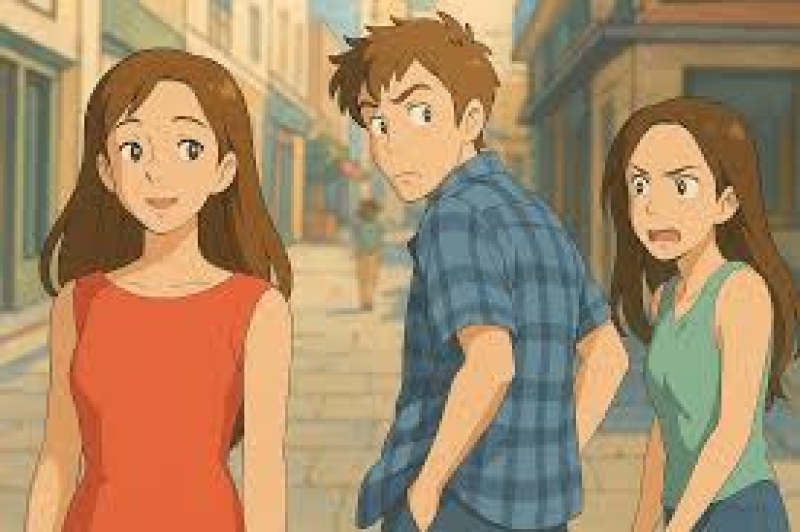- Bangladesh Economy Shows Signs of Recovery Amid Challenges |
- Bangladeshi Women Student July Protest Leaders to be honoured at Women of Courage Award ceremony |
- 'Eid of sadness': Gazans pass with scarce food, razing war |
- 5 Eid congregations planned at Baitul Mukarram Mosque |
- Heat wave may sweep Bangladesh on Eid Day Monday |
ChatGPT's Ghibli-Style Images Spark AI Copyright Concerns

Fans of Studio Ghibli, the iconic Japanese animation studio behind masterpieces like Spirited Away, were excited this week when a new version of ChatGPT allowed users to transform popular memes and personal photos into the distinct, hand-drawn style associated with Ghibli’s founder, Hayao Miyazaki. The trend quickly went viral, generating stunning images that resembled the magical and whimsical worlds Ghibli is famous for.
However, the rising popularity of these AI-generated Ghibli-style images has sparked significant ethical concerns. The primary issue revolves around the use of artificial intelligence tools trained on copyrighted creative works, prompting questions about the potential threat to human artists and their intellectual property rights. Miyazaki, now 84, has expressed skepticism in the past about AI’s role in animation, particularly regarding the loss of the human touch in creative processes.
Entrepreneur Janu Lingeswaran from Germany was one of many experimenting with the tool. He uploaded a photo of his 3-year-old ragdoll cat, Mali, and had ChatGPT transform it into a Ghibli-style illustration. Lingeswaran was impressed by the result, describing it as “stunning” and even considering printing it for display at home. Similar AI-generated images have been widely shared, including a Ghibli-inspired version of Turkish Olympic shooter Yusuf Dikec and a reimagined take on the famous Disaster Girl meme.
OpenAI's ‘Ghiblification’ Experiment Sparks Debate
OpenAI, the creator of ChatGPT, has encouraged these so-called “Ghiblification” experiments, despite ongoing copyright concerns surrounding its AI models. OpenAI CEO Sam Altman even changed his social media profile picture to a Ghibli-style AI image, fueling the trend further.
In a technical paper released earlier this week, OpenAI stated that it takes a "conservative approach" when mimicking individual artists' styles. The company claims to have incorporated safeguards that prevent the creation of images in the style of living artists, yet it defends the broader use of studio aesthetics, calling the results “inspired original fan creations.”
Studio Ghibli has yet to comment on the AI trend, with both the studio and its North American distributor declining to respond to inquiries.
Miyazaki’s Past Criticism of AI Resurfaces
As the trend continues to spread, Miyazaki’s past comments on AI-generated animation have resurfaced. In a 2016 documentary, Miyazaki expressed his concerns after being shown an AI demonstration involving grotesque and unnatural movements. He rejected the idea of incorporating AI into animation, calling it "an insult to life itself." His strong stance against AI in the creative process highlights the deep ethical divide over the role of technology in art.
Legal Questions Surrounding AI Training on Ghibli’s Work
The rise of AI-generated Ghibli-style images has reignited legal debates over the use of copyrighted material. Josh Weigensberg, a partner at the law firm Pryor Cashman, raised questions about whether OpenAI obtained permission to train its model on Ghibli’s works.
“Do they have a license or permission to do that training or not?” Weigensberg asked, noting that while an artistic “style” itself may not be copyrightable, AI-generated images could still infringe upon specific, recognizable elements of Ghibli’s films.
Artist Karla Ortiz, who is suing AI companies for copyright infringement, condemned the trend as “another clear example of how companies like OpenAI disregard artists’ work and livelihoods.” She argued that OpenAI is exploiting Ghibli’s reputation to promote its own products, calling it an act of “insult” and “exploitation.”
Political Fallout: The White House Joins the Controversy
The debate over AI-generated Ghibli-style art took a political turn on Thursday when the White House posted a Ghibli-inspired AI image on its official X account. The image depicted a weeping woman from the Dominican Republic, recently arrested by U.S. immigration agents.
Ortiz swiftly condemned the use of Ghibli’s style for political purposes, calling it an inappropriate distortion of real-world struggles. “To see something as brilliant as Miyazaki’s work butchered to generate something so foul,” she wrote, urging Studio Ghibli to take legal action against OpenAI.
As the controversy surrounding AI-generated Ghibli-style art continues to unfold, the debate over the ethical and legal implications of AI tools trained on copyrighted creative works is likely to intensify.

